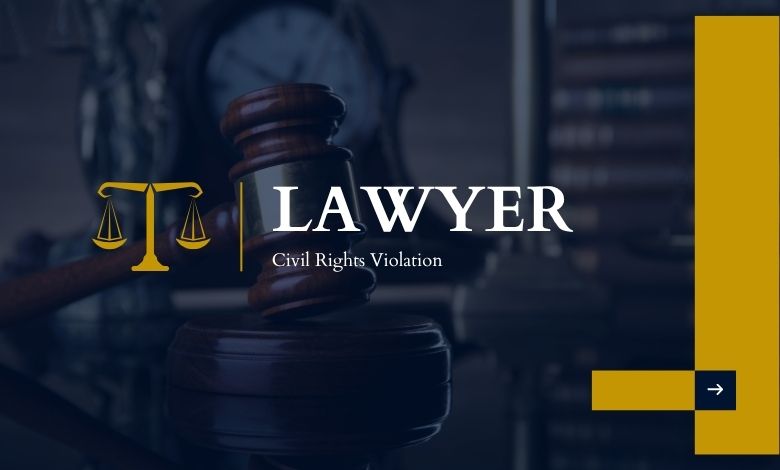Civil Rights Violations: Legal Options and Representation

Civil rights are fundamental protections and freedoms guaranteed to every individual by the Constitution and various federal and state laws. These rights include freedom from discrimination, the right to equal treatment under the law, freedom of speech, voting rights, and protection against unlawful searches and seizures. Unfortunately, civil rights violations still occur, affecting individuals’ lives and liberties. If you believe your civil rights have been violated, understanding your legal options and how representation can help is critical.
What Are Civil Rights Violations?
A civil rights violation occurs when a government entity, official, or sometimes a private party acting under government authority infringes on an individual’s constitutional or statutory rights. Examples of violations include:
- Discrimination based on race, gender, religion, national origin, disability, or age.
- Police misconduct such as excessive force, unlawful arrest, or racial profiling.
- Violation of free speech or assembly rights.
- Denial of the right to vote.
- Unlawful searches or seizures by law enforcement without a warrant or probable cause.
- Employment discrimination or harassment in workplaces covered by civil rights laws.
Civil rights laws aim to protect individuals from unfair treatment and abuse of power.
Common Types of Civil Rights Cases
Civil rights litigation covers a broad spectrum of issues. Some of the most common cases include:
- Police Misconduct and Excessive Force: Victims can sue law enforcement officers for using unreasonable force, false arrest, or racial profiling.
- Employment Discrimination: Workers may pursue claims if they face discrimination, harassment, or retaliation due to protected characteristics.
- Housing Discrimination: Cases involving refusal to rent or sell property based on race, disability, or familial status.
- Voting Rights Violations: Challenges to voter suppression tactics or discriminatory election practices.
- Freedom of Speech: Lawsuits involving censorship or retaliation for exercising free speech rights.
Each case requires a nuanced understanding of constitutional and statutory law.
Legal Options for Victims of Civil Rights Violations
If you believe your civil rights have been violated, several legal options are available:
1. Filing a Complaint with a Government Agency
Many civil rights violations can be reported to government agencies tasked with enforcement, such as:
- The Equal Employment Opportunity Commission (EEOC) for workplace discrimination.
- The Department of Housing and Urban Development (HUD) for housing discrimination.
- The Department of Justice (DOJ) Civil Rights Division for police misconduct or voting rights issues.
These agencies investigate complaints, attempt mediation, and can file lawsuits on your behalf.
2. Filing a Civil Rights Lawsuit
You may file a lawsuit under statutes such as 42 U.S.C. § 1983, which allows individuals to sue state actors who violate constitutional rights. Federal laws like the Civil Rights Act of 1964 and the Americans with Disabilities Act (ADA) also provide legal avenues.
Through litigation, victims can seek:
- Monetary damages for physical, emotional, or financial harm.
- Injunctive relief to stop ongoing violations.
- Policy changes or court orders requiring reforms.
How a Civil Rights Lawyer Can Help
Navigating civil rights claims requires expertise and strategic advocacy. Here’s how a civil rights lawyer can assist:
1. Case Evaluation and Legal Guidance
An experienced attorney reviews the facts, assesses the strength of your claim, and explains your rights and legal options. This evaluation helps determine whether a lawsuit, administrative complaint, or other remedies are appropriate.
2. Investigation and Evidence Gathering
Civil rights cases often hinge on detailed facts and evidence. Lawyers collect documents, interview witnesses, obtain police records or employment files, and consult experts to build a strong case.
3. Negotiation and Settlement
Many civil rights cases resolve before trial through negotiation or mediation. A lawyer advocates on your behalf to secure fair settlements, which may include compensation and policy changes.
4. Litigation and Trial Representation
If necessary, your lawyer will file lawsuits, prepare pleadings, handle discovery, and represent you in court. Skilled litigation is essential to hold violators accountable and secure justice.
5. Protection from Retaliation
Victims of civil rights violations often fear retaliation. Lawyers ensure that your rights remain protected throughout the process.
Statute of Limitations and Important Considerations
Civil rights claims are subject to strict time limits, known as statutes of limitations, which vary by claim and jurisdiction. Delaying legal action can result in losing the right to sue. Therefore, it’s important to consult a civil rights attorney as soon as possible after an alleged violation.
Additionally, civil rights litigation can be emotionally taxing and complex. Professional legal support provides not only technical knowledge but also emotional reassurance and advocacy.
Conclusion
Civil rights violations undermine the core principles of justice and equality. If you have been subjected to discrimination, police misconduct, or any other infringement of your civil rights, you have legal avenues to seek justice and compensation.
Hiring a skilled civil rights lawyer is crucial to navigating these complex cases. They provide legal expertise, protect your rights, and help hold violators accountable. If you suspect a civil rights violation, don’t delay—seek professional legal advice promptly to explore your options and protect your future.



